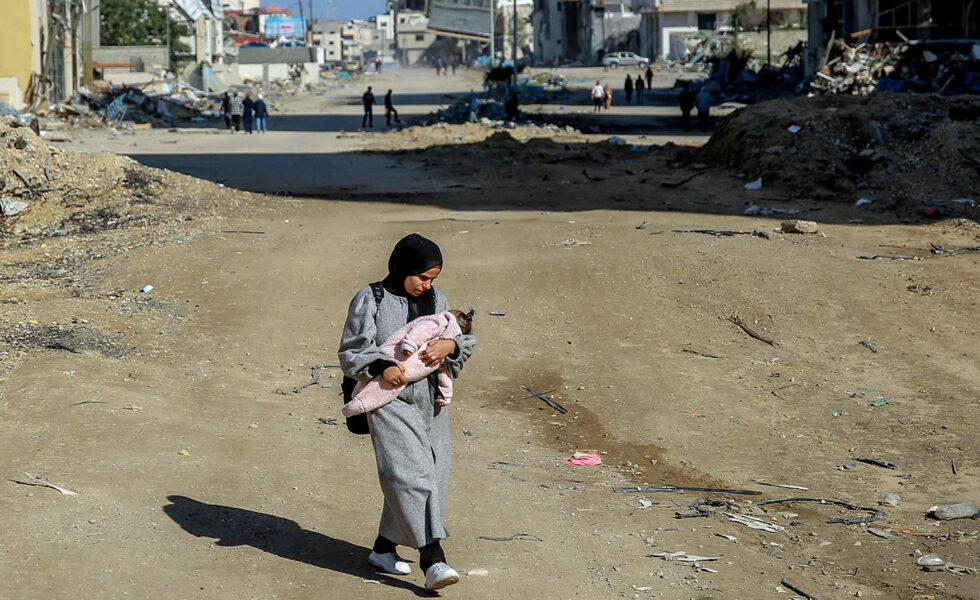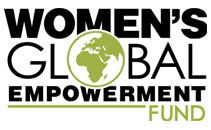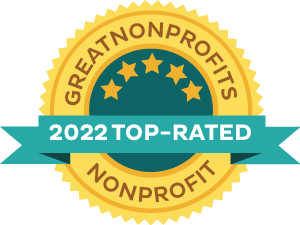Caught In Between: Women and Conflict in Gaza, 5 Months Later
Posted on March 8, 2024 by wgefund

War is a testament to our collective failure as human beings, a stark reminder that in conflict, there are no winners. In the face of unimaginable atrocities and suffering, it is important to recognize that the true victors are not those who conquer with brutality, fear, and destruction, but rather, those who lead with humility and compassion, upholding the fundamental human rights and dignity of all individuals while valuing and respecting the tapestry of our shared humanity.
As a human rights organization focused on northern Uganda, which faced a long and brutal conflict, violence, and extreme poverty in recent history, WGEF knows first-hand the toll conflict takes on women and children in particular. While the region has been peaceful for the last decade, it continues to struggle to rebuild and recover.
As the founder of WGEF and a university instructor who teaches gender studies, human rights, and social justice, I have an acute understanding of the impact, short and long-term, on women in conflict regions. The toll on their bodies, minds, and well-being is unique and disproportionate.
Data suggests that over 90 percent of war victims are civilians, the majority (70%) of whom are women and children. Women and children are specifically vulnerable because of their status and sex. Innocent people living in villages and towns are often caught in the crossfire, if not targeted.
Currently in Gaza, women and girls are facing a perilous and inhumane reality. As has been widely documented, there is an unfolding famine, hospitals and facilities in Gaza lack fuel, clean water, medicine, and safety. The following are examples of how current conditions disproportionately impact women:
- There are an estimated 50,000 pregnant women in Gaza, many of whom are experiencing severe challenges with their pregnancies due to lack water, food, and safety. Many will give birth in the next few weeks, in conditions that are unsanitary and dangerous, without water and fuel to power hospitals. It is reported by all major news outlets, and the UN that doctors are performing c-sections by cell phone light, and without adequate anesthetic or pain medicine.
- Water is vital for all life, but especially nursing mothers, who, due to diminished access to water, are unable to nurse their babies. Water is essential for healthy pregnancies, and mothers who breastfeed need to drink extra water to be able to produce milk for their babies.
- Many Palestinian women have resorted to taking menstruation-delaying pills due to the desperate, unsanitary circumstances they have been forced into as a result of the continuing offensive in Gaza. Facing displacement, overcrowded living conditions, and a lack of access to water and menstrual hygiene products such as sanitary napkins and tampons, women have been taking norethisterone tablets—ordinarily prescribed for conditions such as severe menstrual bleeding, endometriosis, and painful periods—to avoid menstruation.
- An estimated 37 mothers are killed every day, leaving their families devastated and their children traumatized, with diminished protections.
The current siege on Gaza poses additional risks to health and life for women and girls. Their suffering is one more reason that we should demand the restoration of power and water, allow fuel into Gaza, and immediately and consistently open its crossings for humanitarian aid.
We are now 6 months into this devastating and brutal conflict; we condemn state leaders in Israel, the US government and others, for providing weapons, including bombs and bullets, who are leading an indiscriminately violent escalation against innocent Palestinians and a total blockade of critical humanitarian aid in Gaza, leading to immense suffering, famine, and the deaths of over 31,000 people, 13,000 children. There must be an immediate ceasefire and an end to the weaponization of water and food, collective punishment, and forcible transfer of the Palestinian people in Gaza.
WGEF supports women, girls, and communities. We will continue to provide transformative programs and initiatives that promote human rights, equality, and justice for all.
—Karen Sugar, Founder and Director of Women’s Global Empowerment Fund (WGEF)
To support the rights of women and girls to live with dignity and freedom, please join our revolution:
Read Karen’s previous statement, from the start of the war in Gaza…
Category: Front Slideshow, News Tags:
 Women's Global Empowerment Fund
Women's Global Empowerment Fund